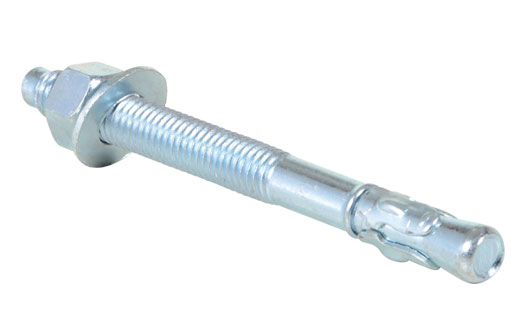Phone Number
+91-22-66287900


Anchor bolts append and secure structural elements or components to substantial structures. As a
general rule, anchor bolts are utilized to secure skids, hardware, and structural members to
concrete. One end of the anchor bolts is implanted in the concrete, while the opposite end is
kept uncovered or exposed. The exposed end is normally threaded to attach structural elements or
the equipment.
Anchor bolts are designed to attach structural elements or components to
concrete. In many
industries, anchor bolts are typically used to attach or append steel to concrete. One end is
installed into the concrete, while the opposite end is threaded to attach primary support. A
mechanical fastener that connects numerous objects to a concrete surface is known as an anchor
bolt. A Civil engineer or specialists frequently use these heavy-duty fasteners. Anchor bolts
have a specific design that keeps equipment and structures protected in place.
Selection of Anchor Bolt
At the point when you connect or interface a piece of equipment to concrete, it ought to hold for a lifetime. For that reason, it is essential to select the right anchor bolts for your application. There are many issues to consider while choosing an anchor bolt to fasten an object to a substantial structure. Selecting or picking the correct anchor bolt relies upon several elements.
Some of the essential or fundamental factors to consider while selecting anchor bolts are:
Types of Anchor Bolts
Contingent upon the installation necessities, Anchor bolts utilized in industrial ventures are categorized into the accompanying two groups:
Cast-in-Place Anchor Bolts
From the name itself, it is very certain that the cast-in-place anchor bolts are projected directly into the concrete material. They are the least complex yet the most grounded of all anchor bolts utilized. This kind of anchor bolt is placed in the wet concrete that turns out to be fully secured when the concrete fixes and solidifies.
Post-Installed Anchor Bolts
Post-installed anchor bolts are installed after the concrete has previously been laid down at the site. In this sort of anchor bolt, a hole or opening is required to be bored into that concrete surface and the screw is installed. Some common post-installed anchor bolts
Mechanical Anchor Bolts
Utilize the frictional force or power to fix themselves in location. When installed, the mechanical anchor bolts expand which grips the base material firmly and act as an anchor.
Chemical Anchor Bolts
Chemical anchor bolts give greater adaptability and flexibility when contrasted with mechanical anchor bolts. In this kind, a resin is infused into the hole prior to inserting the stud. The chemical resin fills all irregularities of the hole and makes it waterproof and impenetrable. The bond produced by chemical anchor bolts is more grounded than the base materials.
Applications of Anchor Bolts
Anchor bolts fasten and connect structural and non-structural parts to concrete. They are used in essentially every sector. Anchor bolts are generally utilized in the following industries: